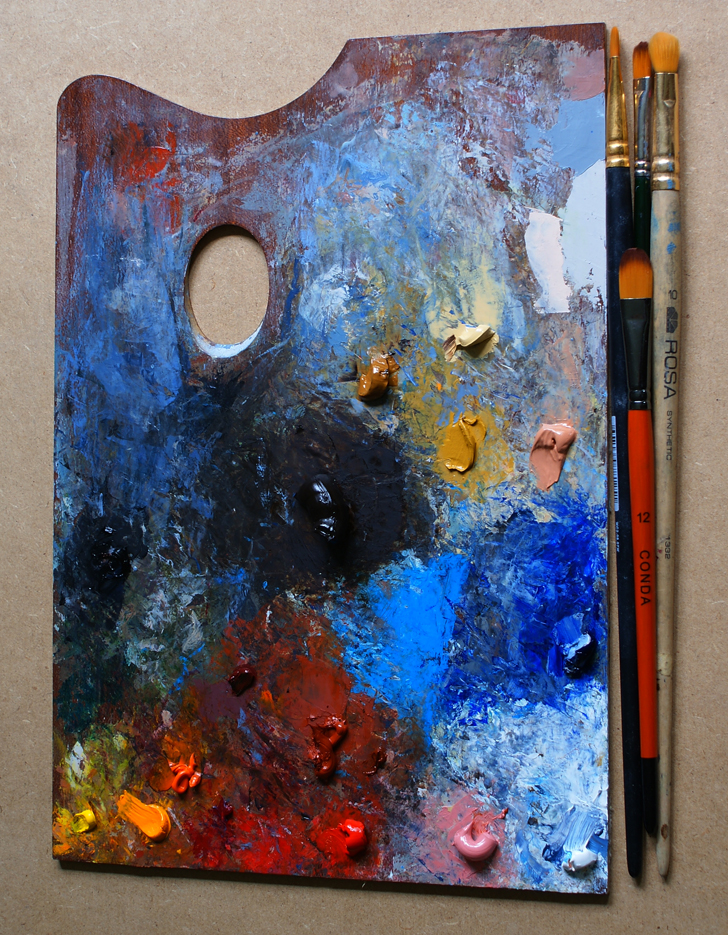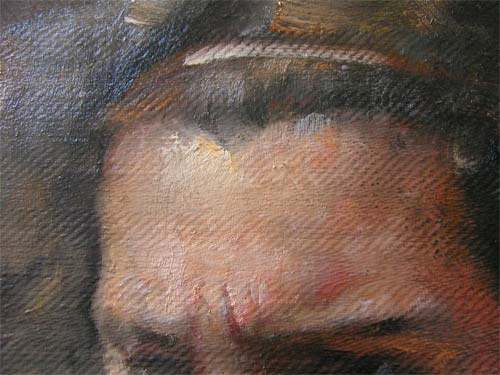On 28 Aug, 2012 With
Oil painting essential materials and techniques: PAINTS Of all your materials, it is on your paints that quality has the most vital effect. With bad paint your work is hopeless. You may get an effect that looks all right, but how long will it stand, and how much better may it not have been if your colors had been good? You can tell nothing about it. You may have luck, and your work hold; or you may not have luck, and in a month your picture is ruined. Don’t trust to luck. Keep that element out as much as you can, always. But in the matter of paints, if you count on luck at all, remember that the chances are…
Read More
On 12 Nov, 2010 With
Click here to download The Must-have Guide for Successful Fine Artist This Book can give You only two things: FAME and WEALTH Odd Nerdrum Preparation (his student demoed it in class): size the canvas with rabbit skin glue. (PVA glue can be used as a substitute). Priming the canvas: Materials -Framer’s Whiting (ground chalk) -Linseed Oil?-Galkyd (just a little bit, to speed up drying time) -Turpentine (just a litte bit; and do not use OMS) mix with a thick long palette knife until the mix is the consistency of toothpaste. (it was more like pancake batter) add white and English Red (or transparent oxide red) so that the final mix is a pinkish brick color. Make sure the canvas is…
Read More
On 17 Sep, 2010 With
Classical Realism Classical Realism refers to an artistic movement in late 20th century painting that places a high value upon skill and beauty, combining elements of 19th century neoclassicism and realism. Origins The term “Classical Realism” was originally used in the title of a 1982 exhibition by Richard Lack (1928 – 2009), a pupil of R. H. Ives Gammell(1893-1981). The movement traces its lineage from Jean-Léon Gérôme (1824-1904) through William Paxton (1869-1941) of the Boston school. By 1985 Richard Lack had begun publishing Classical Realism Quarterly, with articles written by Lack and his students, aiming to inform the public about traditional realist painting. In a separate vein, another major contributor to the revival of traditional drawing and painting knowledge is the painter and art instructor Ted Seth Jacobs…
Read More
On 4 Aug, 2003 With
Oil paint is an exciting medium to work with. One will never become bored while painting with oil paints. There are a variety of materials and other mediums at your fingertips and when you combine these materials and mediums with the versatility of oil paints, you have a variety of interesting ways to begin an oil painting. There are certain drawing and painting mediums that are compatible with oil paints and when utilized, will make your painting experience more interesting and enjoyable.CHARCOALCharcoal works beautifully as a preliminary step to oil painting. There are three main forms of charcoal used most often by artist’s and they are compressed, willow and vine charcoal. Willow and Vine charcoal tend to be more highly…
Read More
On 2 Jan, 2003 With
Oil painting is a wonderful medium all on its own, but there are modifiers that you can add to the oil paint that can change its behavior. This article will give you an overview of some of the more popular oil painting mediums available to today’s oil painters. The use of oil painting mediums is really a matter of taste and not a requirement. Many artists do not use any mediums at all other then a bit of oil to make the paint more workable, as some paints are quite thick straight from the tube. Other artists swear by certain mediums. It should also be noted that artists differ on opinion when it comes to the effectiveness and quality of…
Read More
On 2 Jan, 2003 With
One of the more frequently asked questions from beginners in oil painting is: How do I get Started? To get started in oil painting is relatively easy. There are some basic supplies that you will need and some basic guidelines to follow. This article will discuss how beginners can get started with oil painting. This article will not teach you how to become a good painter however. In fact, no one can make you a good painter. You can only be taught certain things and it is up to you to take what you have learned and apply it. Many beginners who are new to the oil painting medium, generally have the same questions. So let’s cover those questions now…
Read More



